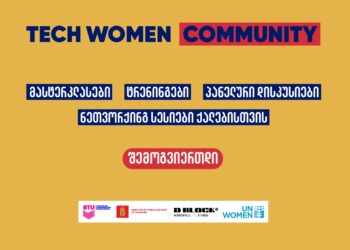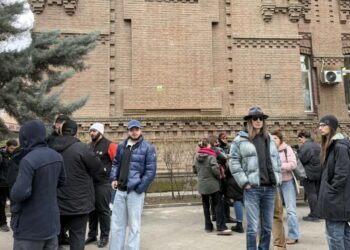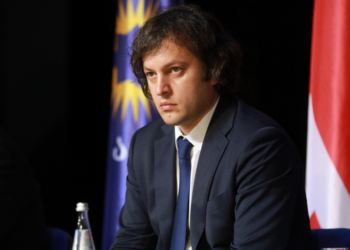Civil engagement is one of the keys to a country’s success. The United Nations Development Program has issued new grants, which in total amount to over $300,000, aiming to encourage participation in local government.
In a bid to foster government accountability and support civic activism, the United Nations Development Program (UNDP) has issued grants worth a total of $315,000 to 18 civil society organizations in six Georgian regions: Imereti, Mtskheta-Mtianeti, Kvemo Kartli, Guria, Samegrelo-Zemo Svaneti and Racha-Lechkhumi-Kvemo Svaneti.
The grants, a part of a Danish-funded $4 million program to support good governance, are the result of a competitive call for proposals to foster greater participation by citizens in decision-making and implementation at the local level. To its very core, the UNDP works to empower those who need it the most, especially in the above-mentioned six regions of Georgia, where particular ethic groups and women are those most in need. The grants thus focus on promoting the engagement of women, youth and ethnic minorities. “As a result, UNDP will fund 11 projects, each worth some USD 30,000, that will engage 3,000 citizens in 31 municipalities,” the organization announced.
“Civic engagement is vital to ensure that local governments respond to local needs,” said UNDP Head Louisa Vinton. “Getting citizens involved is still a challenge in Georgia, however, so our aim is to help create space and tools for local communities to have a say in matters that affect them.”
The successful proposals will boost and expand civic participation, including petition writing and participation in municipal boards of advisors; this includes creating a dedicated online platform to collect and disseminate knowledge about participatory practices, and, above all, strengthening collaboration between the civil sector and local self-government.
In Imereti, the chosen civil society projects will create a discussion space for local authorities, civic activists and business, as it focuses on assisting citizens in taking a more active part in planning municipal budgets. In Kvemo Kartli, UNDP grants will be used to fund activities by local youth initiative groups and promote volunteering and social media platforms to address social issues, while in Guria, the UNDP grant will aid the local “Participation Academy” in organizing educational programs in decentralization and public engagement. In Samegrelo-Zemo-Svaneti, local organizations will help submit public petitions to address the most pressing social and economic issues and protect vulnerable groups: internally displaced persons, people with disabilities, and the elderly and children without family care.
Adopted back in December 2019, Georgia’s national Decentralization Strategy 2020-2025, created with UNDP support, has increasing citizens’ participation and engagement in self-governance as one of its goals. This is precisely the goal of this initiative. And, hopefully, that goal, when completed fully, will bring some good outcomes. It doesn’t take an expert to know that many of Georgia’s problems would be solved with higher civil engagement.
By Nini Dakhundaridze














